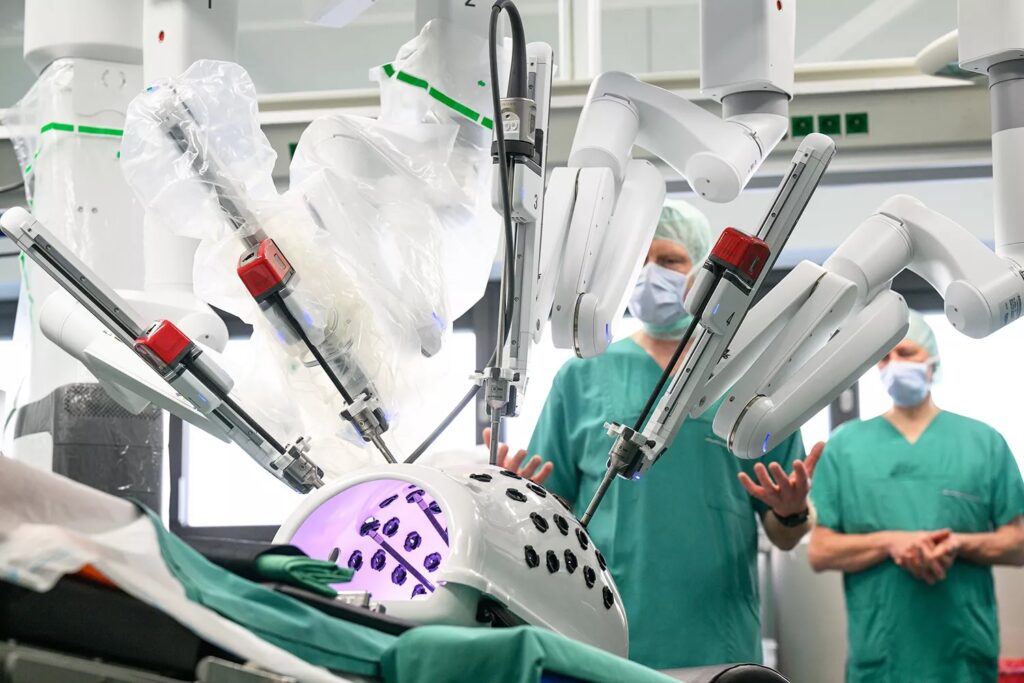12/02/2024
12/02/2024

WASHINGTON, Feb 12, (Agencies): A recent lawsuit against the manufacturer of a surgical robot alleges that a woman died due to burns inflicted by the device during colon cancer surgery, leading to her eventual demise. The legal action stems from the case of Sandra Sultzer, who underwent surgery for colon cancer in September 2021 at Baptist Health Boca Raton Regional Hospital in Florida. The procedure involved the use of a "da Vinci robot," described in the lawsuit as a "multi-armed, remote-controlled, surgical device," manufactured by Intuitive Surgical, Inc.
The lawsuit outlines that the da Vinci robot incorporates various surgical tools, including forceps, scissors, scalpels, and others, some of which utilize electrical energy for cutting and cauterizing living body tissue. Allegedly, it was this electrical energy that resulted in Sandra Sultzer's death, as claimed by her widower, Harvey Sultzer, in the lawsuit. The legal document contends that the manufacturer was aware of the insufficient insulation on its electrosurgical instruments, allowing electricity to leak into the body and cause internal burns.
Highlighting a pattern of issues, the lawsuit alleges that this is not the first time Intuitive Surgical's devices have been linked to injuries or fatalities. A recent SEC filing by ISI acknowledges the company's involvement in numerous product liability lawsuits, with plaintiffs asserting personal injuries or death following surgeries involving the da Vinci surgical system.
The lawsuit attributes Mrs. Sultzer's death to thermal injury to the small intestine during the da Vinci surgery, resulting in a perforation requiring subsequent medical intervention and causing permanent physical and emotional injuries. Despite additional surgeries to address complications, Mrs. Sultzer passed away in February 2022.
The legal action emphasizes persistent problems, claiming that the da Vinci device is not only poorly designed but is also operated by individuals lacking proper training. Seeking accountability for alleged design flaws and insufficient training, the lawsuit underscores the tragic consequences in this particular case.


